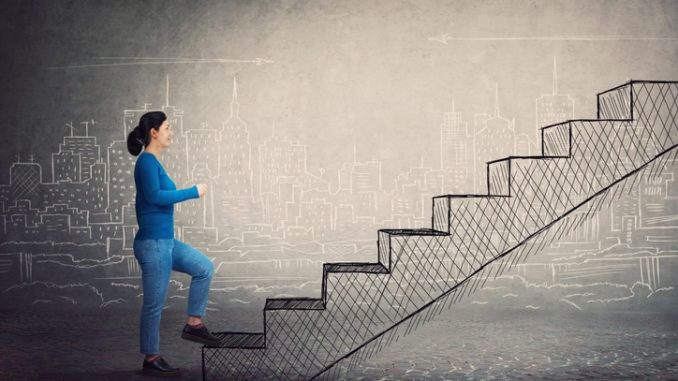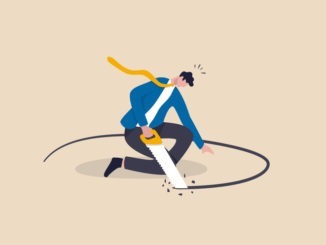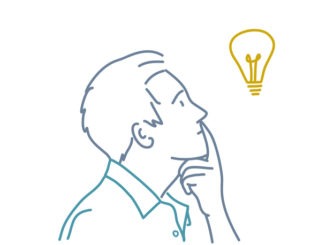
Discover the power of self-love – and the ways it can change your life – as we get the inside scoop from life coach Ayesha Giselle on the practical steps you can take to start falling head-over-heels for yourself
CREDIT: This is an edited version of an article that originally appeared on Happiful
<text begins>
The greatest gift we can give ourselves is self-love. It lifts us up, assures us of our strengths and worth, and carries us through the hard times.
Of course, throughout our lives, we may find ourselves riding through peaks and troughs in terms of our relationship with ourselves. One day, we might be our own best friend, and feel proud of the person that we are; other times, we come up against self-doubt, and feelings that we aren’t worthy of the support and love that we really need. Through it all, self-love has the ability to help us ride the waves.
“To me, self-love is holding yourself in the highest possible regard,” Ayesha Giselle, a life and accountability coach, explains. “It’s loving, liking, enjoying, appreciating and accepting your individual qualities. It’s being kind to yourself, being committed to yourself, and taking care of yourself. It’s the degree to which you believe that, deep down, you are worthy and deserving of the good things that you desire.”
As Ayesha sees it, self-love emerges when you really take the time to explore and understand who you are, and who you are becoming. Each of us has our own personal hurdles to jump, and feelings of contentment can come and go – but, if you’re ready to commit to self-love, where should you start, and what are the practical steps you need to take? What do we have to gain?
For Ayesha, self-love and wellbeing go hand-in-hand. “Self-love enables you to understand yourself enough to know what your needs are, and it helps you regard, and honour, yourself, so that you get those needs met,” she says. She believes that self-love ripples out, and those good feelings that you’ll be harnessing will seep into your relationships with others as you approach them with confidence and assurance.
“You’ll be able to be more tolerant of life’s frustrations, encouraging a more forgiving attitude towards yourself and others,” Ayesha adds. Beyond this, when we’re kind to ourselves, there are some very real physiological forces at play. A study published in the journal Clinical Psychological Science found that participants who thought kind thoughts to themselves displayed lower heart rates and sweat responses – which suggests that having our own back switches off our threat response, and puts the body in a state of safety and relaxation.
What’s in our way?
For many, the first step towards a better relationship with ourselves is taking a hard look at the things that are standing in our way. In her work with clients Ayesha often sees five main obstacles: clients being too hard on themselves; not communicating boundaries; not meeting needs; not feeling ‘lovable’; and people-pleasing.
“I have come across many clients who are extremely hard on themselves – for the choices they’ve made, for not following through on their promises, for how they behave, or for their habits,” says Ayesha. “I’ve had to teach clients to be kind to themselves, and to remember that the only way we improve our lives is by learning from our mistakes, rather than putting ourselves down. Being too hard on yourself takes you on a downward spiral – it’s not a loving act at all.”
In the same vein, Ayesha notes how understanding our needs, avoiding people-pleasing, and setting boundaries can help us lay the foundations of what we will and won’t tolerate, both from the people in our lives, and also from ourselves.
A good place to start when we’re looking to focus inwards, is actually outwards. “If you think about when you love a person, you do whatever you can to meet their needs because you believe that they are deserving of that,” Ayesha explains. “To not meet your own needs is to disregard yourself – it’s like telling yourself you are unworthy of the basics – which isn’t true.”
Step-by-step
So, once you’ve worked through the things that might be holding you back, what are your next steps? As Ayesha sees it there are several practical things we can all do to foster self-love, and there’s no time like the present to get started. Seeing ourselves through the eyes of those who love us can teach us some valuable lessons on self-love.
To begin, Ayesha recommends taking care of yourself mentally, physically, spiritually and emotionally by checking in with yourself regularly. She suggests asking yourself, ‘What am I feeling? Am I maintaining and setting healthy boundaries? How will I meet my needs?’ It might be helpful to frame your thoughts using the following prompts:
I feel…
I need…
I forgive…
I trust…
I celebrate…
I release…
Above all else, Ayesha suggests we ask, “What would someone who loves themselves do?” It’s a simple question, but it reveals the layers of thought that go into each decision we make.
Take stress, for example. Would someone who loves themself push ahead and berate themselves for getting flustered, or would they take some time off, and try again with a fresh, healthy mind? Apply this thinking to the things that come up in your everyday life, and you’ll soon discover the path that you need to take.
Along for the ride
We’re each on our individual paths but, as we move forward with our own journeys, we have the power to bring others along with us. “Being patient with others will encourage them to be patient with themselves,” says Ayesha. “Respect people’s boundaries. You don’t always need to understand them – reasons for certain boundaries can be complex – but respecting them will give them the space they need to tune-in to themselves and grow.”
As with the first steps in your own journey, extend your compassion and understanding to those you see going through the same thing, noting how they may need to do a lot of ‘unlearning’ – tackling unhelpful and self-deprecating thought patterns – which can be challenging and draining.
“By leading by example, you inspire hope and belief in others,” says Ayesha. “One of the best gifts we can give to other people is being our authentic selves. This teaches others how to love themselves; by being a vessel of love, and sharing your love, you can teach others how it feels to be loved.”
Over to you
If you’re not already convinced that it’s time to start investing in self-love, Ayesha breaks it down clearly for you. “There’s only one way to live a life of fulfilment and joy, and that is through self-love,” she says. “Self-love is the gift that keeps on giving.”
And it does. Through the good times and the bad, from moments in our lives when we’re pushed into unknown territory, and those that make us question our characters, everything’s easier when we have our own backs.



Be the first to comment